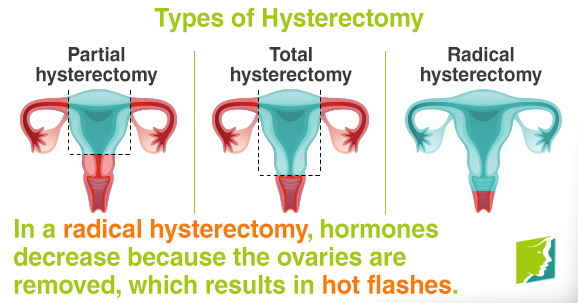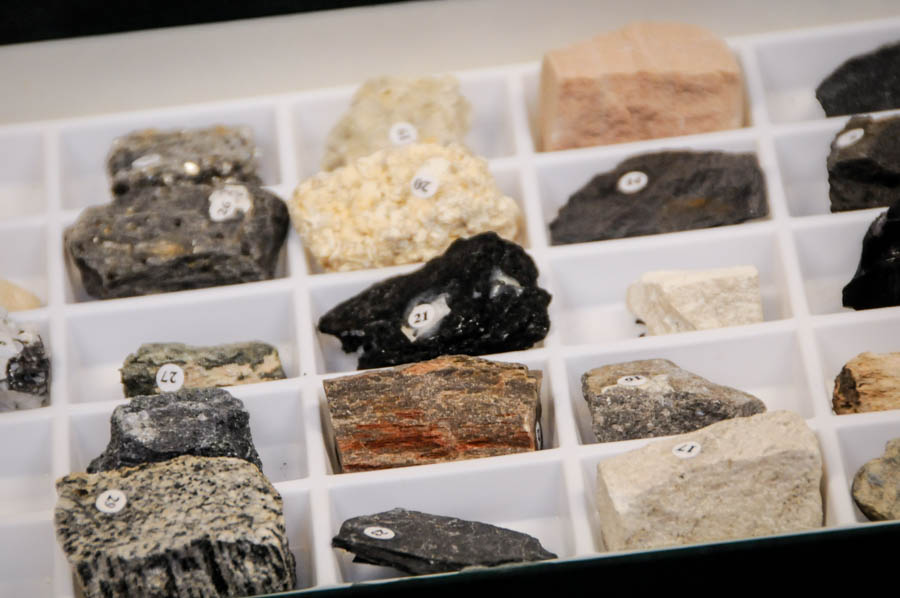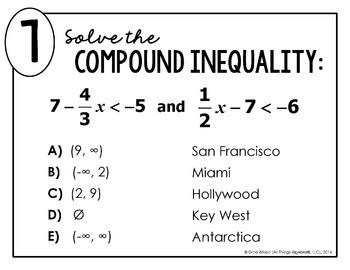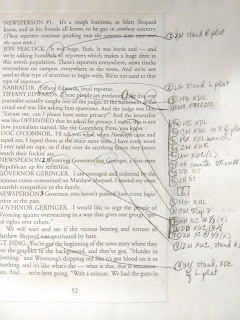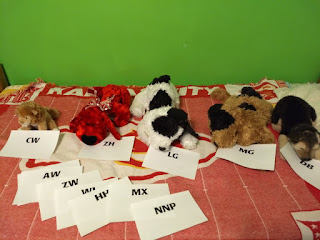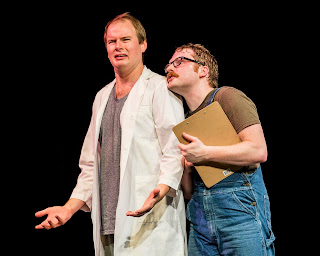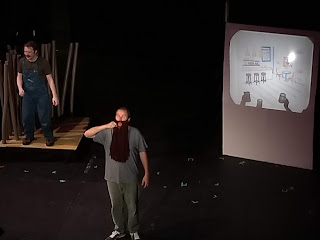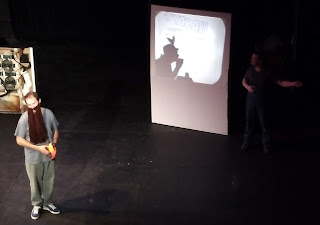 |
| "HERE IS GOOD": Social distancing in the theater |
This is going to be one of those posts. I hope it will also be more than that.
In March of last year, my school was about halfway through rehearsals for It Can't Happen Here (which I thought was important to present before the election), when we went on Spring Break and never came back. The novel coronavirus, known as CoVID-19, hit this country, and everything shut down.
At first, my school just extended Spring Break by a week. Then two. And teachers everywhere had to learn a new way of teaching, never being in the same room with our students, NOW. It was extremely stressful. I cried a lot.
Isolate at home. Social distance. Hand sanitizer. Face masks must cover both your nose and mouth. No bandanas or gaiters, those aren't the same as face masks. Hand sanitizer. Wear latex gloves when you go out. Wipe down your groceries with anti-bacterial spray when you get home from the store. Hand sanitizer shortages. Toilet paper shortages? Essential workers. No restaurants, bars, gyms, concerts, movie theaters, weddings, funerals. Sanitize your hands after getting the mail, then let the mail sit for 24 hours before you open it. At least six feet apart from anyone you don't live with. No handshakes, no hugs, no pats on the back. Hand sanitizer. Droplets. Aerosols. No shouting. No singing.
 |
| But shouting and singing are all I know how to do. |
Then school didn't come back into the building. I emailed the students in the cast and crew, canceling the show. I cried.
Broadway shut down indefinitely.
Teaching online proved to be far more exhausting than any of us realized. It became routine that, within an hour of my final class on Fridays, I was crying, and/or asleep.
As difficult as it was for me, I know it was harder on the students. We have an awesome school counselor who really emphasized the need to focus on the mental and emotional health of our students, as well as ourselves. Of course, parents were struggling too. Our world changed, practically overnight, and we were all navigating territory that we hadn't even imagined.
I went back to the school building in May, to pick up some materials and clean a few things out before summer... And everything was frozen in time. The rehearsal calendar was still on the callboard. There were costumes that we'd started to pull, still laid out in piles onstage. The backdrop had been chalked out, but would never be painted.
 |
Hm. Red and blue costumes. It's not Romeo and Juliet,
so I wonder what the color scheme of this play about
a revolution against a demagogue President could possibly indicate? |
I sat down in the empty theater and, as a surprise to absolutely no one, I cried.
Over the next few weeks, theaters closed down. Many, many friends, who were contracted for various summer shows, were suddenly out of work. We thought: hang on until fall.
I lost work too, as a teaching artist for The Coterie, a job I've cherished for over a decade. There's no teaching in person, and I couldn't handle anymore Distance Learning. The education director was very understanding, and I can't even imagine the pressure she was under.
The Kansas City Fringe Festival voted to go completely online. Bryan and I had been writing a play about the 19th Amendment, which was turning 100 years old in August. The way the play was structured, we decided, would not communicate well if it wasn't onstage. So, for the first time since 2008, we sat out.
Equity told union actors and stage managers that they were not allowed to work until further notice. No theater in the foreseeable future.
George Floyd was murdered, on video, by a grinning police officer. Black Lives Matter. So much police brutality toward peaceful protestors, all over the country. My niece was one of the countless who found herself in a cloud of tear gas.
A senior at school organized a #BLM protest, with help and support from faculty. About 75 people from our school community showed up, having wanted to participate with the larger protests, but frightened by CoVID, as well as police with flashbangs and tactical gear and tear gas and guns.
 |
| KCA students walk the walk. |
My school tried many things to keep in contact with students and parents, to stay in touch with people who couldn't go anywhere, do anything, be with anyone. Some of us volunteered to teach online classes and one-off workshops through the rest of the summer. I taught History of the Marginalized, a class that I'd been proposing for years, a play-watching discussion group, and beginning crochet.
Bryan's grandmother died, but CoVID had already rendered funerals nearly impossible.
I spent the summer reading as many "monologue" plays as I could get my hands on, in an attempt to find one that we could do at school, with social distancing.
I realized that, in all my years as a theater professional, the fear of not having work was never because there simply wasn't any.
I directed an online reading of the play Bryan and I had written for Fringe. It took way longer and was way more difficult than any of us realized when we started. Fortunately, the cast was brilliant and imaginative and brought so much to the project. But it was exhausting and it was not theater.
My mom got rushed to the emergency room, and admitted to the hospital. I couldn't visit her, because of CoVID. (She's okay now.)
School started again. Online. It's no easier than in the spring.
I submitted a document of seven possible scenarios for a theater production at school in the fall semester. Each scenario was exhaustively thought-out. The principal and I agreed on one, where there'd be no more than four actors, performing monologues, on any given night, and no more than 15 masked audience members. All actors would have their individual entrance/exit, so backstage would be distanced as well. For the first time, I insisted upon reservations, so we could separate groups by the minimum six feet. And so many other details. So many.
My mom had major surgery, but I couldn't visit her, because of CoVID. (She's recovered well.)
I held auditions for the school play. I made up a rehearsal schedule, so no more than three students were rehearsing at any given time. We all wore masks and distanced from each other.
My dad was taken to the emergency room, and admitted to the hospital, but I couldn't visit him, because of CoVID. (He's fine now.)
Rehearsals were only 60-90 minutes long; again, to limit our time together. Most people were only called to rehearse one a week, occasionally twice. It was incredibly hard to get any momentum going.
 |
| My god, how they tried, though! |
I twice asked for help building the set, from one tech-knowledgeable student, whom I knew I could trust to focus and be safe. Another student and her mom came and started to organize the costume room, which desperately needed it. The rest of the time, it was me, alone. Often, crying. Because, as I tell my students, theater isn't meant to be done alone.
The presidential election. All elections, for me, are stressful. Presidential elections, almost overwhelmingly so. The anxiety surrounding this presidential election was nearly unbearable.
Then, it didn't end. The current President demanded recount after recount, and lawsuit after lawsuit, because he insisted, publicly and angrily, that he actually won. "By a landslide," in fact. The electoral college had voted 306 to 232, so there was no way. But still, he lied and shouted and insulted. Lawsuits were either lost or thrown out. He furiously claimed - "baselessly," as every news outlet agreed - that it was all a conspiracy against him, and he had been reelected. His followers got louder, and waved signs saying "Stop the Steal" of the election from their fearless (read: deranged and dangerous) leader.
Less than two weeks before we opened, a cast member's parent was diagnosed with CoVID. That meant, among other things, that student would have to quarantine for two weeks. So she couldn't do the show, and I had to rearrange the performances. That included checking with the other actors to make sure they could be there on different nights, and contacting folks with reservations to offer alternate performance nights.
But a few days later, we made the connection that second cast member had been to the first's house only two days before the diagnosis. (The parent has since recovered, by the way.) So she too had to quarantine for two weeks. What's more, she'd been to rehearsal twice since that visit, so everyone who had been to rehearsal with her had to quarantine, at least until she got her test results back. And that included me. Rehearsals had to be suspended.
It was less than a week before we were to open.
So, on Monday of production week, before test results were back for the second cast member, I made the horrible decision to cancel the show. Again.
I cried. A lot. I'm starting to cry right now, in fact, just thinking about it.
My dad had major surgery, but I couldn't visit him, because of CoVID.
I was so scared. At this point, it was most likely a cumulative effect. I mean, yeah, it was his heart, but also, just everything. It was only a couple of days before Thanksgiving. He was, incredibly, released the next day, feeling great.
Two of the cast members were moving out of state over winter break, so I hurriedly scheduled time with them to video their monologues. They had a hard time grasping why we had to do so many takes. I was suddenly teaching acting for the camera, but without time to actually teach it.
The CoVID vaccine was released. An unbelievable scientific achievement.... that the President has decided to take credit for.
Christmas was virtual. And with all families' Christmases being virtual, Christmas was also very short.
Despite over 300,000 American people dead of CoVID, many people still followed the President's early claim that it's a "Democratic hoax" that's "no worse than the flu." Wearing a protective face mask in public is an infringement of their personal rights, they continue to say.
New Year's Eve was virtual. The general feeling is 2020 was obviously cursed, so 2021 had to be better, right?
The Georgia run-off election. Control of the Senate was riding on it. The President continued to insult and lie about that too.
It was finalized the next day: both Democrats won. Before we could fully take it in, the outgoing President, who was holding a rally at the White House, again proclaimed, with absolute certainty, based in nothing that resembles reality, that reelection had been "stolen" from him, and set his vitriolic followers on a march to the Capitol Building.
Insurrection. Violence. Destruction. Attempted coup.
Impeachment #2. A new record. Congratulations.
 |
| Pictured: Sick and tired of winning. |
And there's so much more, always. Every second of every day, it seems there's more to worry about. My worry cup is overflowing, and so I put myself on a news diet, but then I feel guilty because I know it's my privilege to be able to do that at all.
The point is: A (whole, real, amazing amount of) lot has hit all of us, at the same time, for an unbelievably long time. I can't stand the term "unprecedented times" anymore. That it's true only makes me more sick of it. The hits just keep on coming.
But I'm an adult. I have a lifetime of figuring out various coping mechanisms. Even though we're ten months into a pandemic that's just getting worse, and affects more facets of daily life than I ever would have imagined, I can hold on. I can figure out how to muddle my way through, hide when I need to, kick myself in the ass when I need to. In a depressive valley, I know that I will, at some point, find the sun again.
 |
| You're welcome for the earworm. |
My students haven't entirely figured that out yet. They're amazing people - smart and kind and caring - but they don't have the life experience to know about the sun. Because sometimes it's dark for way longer than you ever knew it could be. It's hard to remember that the ice will melt and flowers will bloom.
As I get older, the Dark Times take up a smaller percentage of my life. For young people, though, the same length of time is actually far longer, in comparison to how much life they've lived. Yet, I hear so many adults crabbing on them about being lazy. They're not lazy, they're just spending all their energy trying to survive without any tools.
I have tools. I still have income. I have a house. I have a support network, health insurance, food, clothes. I have agency. I am extremely lucky. I have all of this, but I'm still struggling, daily.
Young people don't have any tools, but they're somehow expected to bounce back better, sooner, higher than the rest of us? That's not fair to saddle them with that.
So if they learn nothing academic from me this year, but are still able to periodically find joy and hope, maybe even optimism, I'm going to call it a win for us all.
 |
| Pictured: Sick and tired and winning. |









